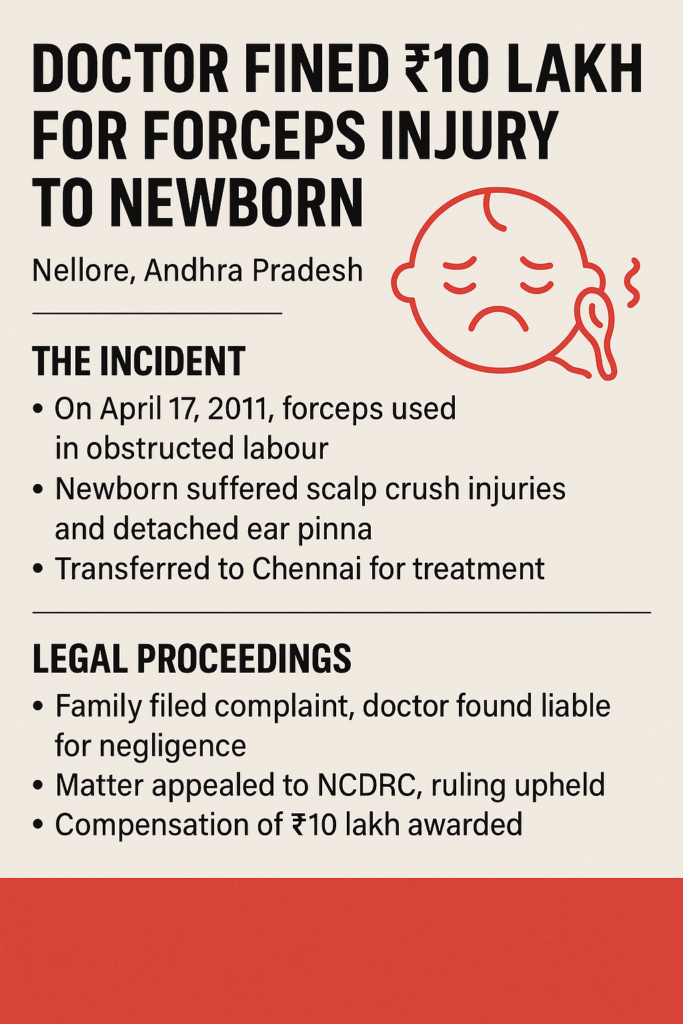Doctor Fined in Birth Injury
Nellore, Andhra Pradesh – In a deeply troubling case of medical negligence, a new born suffered scalp crush injuries and a detached ear pinna during a forceps-assisted delivery. Over a decade later, the National Consumer Disputes Redressal Commission (NCDRC) has directed the attending gynaecologist to pay ₹10 lakh in compensation for the injuries and trauma caused.
On April 17, 2011, the mother, experiencing obstructed labour and carrying a baby estimated at 3.6 kg, was admitted to a private hospital in Nellore.
The delivery was conducted using forceps, a procedure known to require precision and caution. Unfortunately, during the process, the infant sustained crushing of the scalp and detachment of the right ear pinna, resulting in serious complications.
The newborn had to be transferred to Childs Trust Hospital in Chennai, where he underwent a one-and-a-half-month-long treatment for injuries including perichondritis.

The family filed a complaint with the Andhra Pradesh State Consumer Commission, which held the doctor liable for negligence. The matter was later appealed to the NCDRC, where the earlier ruling was upheld.
NCDRC Observations & Ruling
The Commission concluded that the injuries were directly linked to improper handling during forceps delivery.
The court criticized the use of a pre-printed consent form lacking specific mention of the forceps procedure, ruling that proper informed consent was not obtained.
The initial compensation of ₹30 lakh was reduced to ₹10 lakh. In addition, ₹72,530 was awarded for medical expenses and ₹50,000 towards litigation costs.
The bench emphasized that while delivery complications can arise, the nature and severity of injuries, combined with lack of specific consent, justified the finding of negligence.
This case brings to light serious concerns in maternity care:
- The risks of instrumental deliveries like forceps, especially when performed without clear patient communication.
- The ethical and legal obligation to secure informed consent for every medical procedure—especially high-risk ones.
- The critical need for oversight and accountability in private healthcare setups, where documentation often lacks transparency.
More than a decade after the incident, justice has been served for the child and his family. The ruling serves as a reminder that childbirth interventions, while often medically necessary, demand the highest standard of care, skill, and communication. It underscores that informed consent is not a formality it is a right.
– Justice League Foundation
